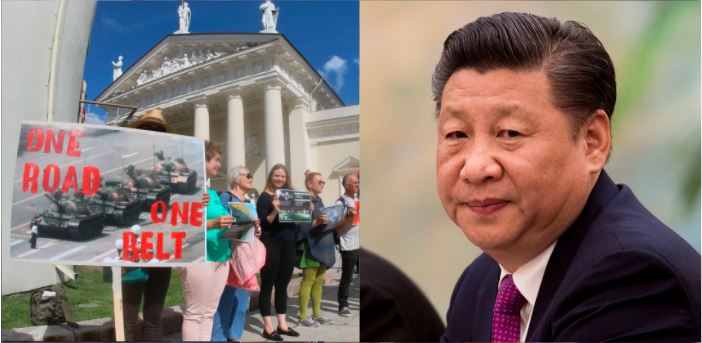The Chinese Communist Party for the longest part of last year and after being shown the possibility of gaining large ground big time tried to invest large sums in the Baltic region of Europe. However, once the lackey of the CCP, these Baltic nations are now waking up to the threat of China. The advent of the Trump Era played a major part in changing their rhetoric manifolds as the three nations – Estonia, Latvia, and Lithuania began to understand that China is a bigger threat that needs to be tackled.
Following the introduction of the so-called 17+1 platform, Eastern Europe’s relations with the emerging superpower deepened and seemed to be relatively frictionless. China’s courtship of this part of Europe also alarmed Brussels bureaucrats, who were concerned that the Chinese Communist Party would use its financial and technical clout to drive a wedge between EU member states. However, as time has passed, three members of this cooperation forum—Estonia, Latvia, and Lithuania—have clearly stopped rowing in the direction of Beijing.
Last year’s convened Tallinn summit marked great progress in the Three Seas Initiative. The summit hosted by Estonian President Kersti Kaljulaid was attended by Secretary of State Mike Pompeo along with top officials from the USA, Germany and the European Union. The summit focused on cross-border infrastructure projects in central Europe. An announcement of USD 300 million was made on part of the US government taking its total investment to a whopping USD 1.3 billion.
On the other hand, as Chinese foreign policy and foreign policy initiatives are failing all around, one of the flagship projects of Xi Jinping which intended to increase Chinese clout in Central and Eastern European countries is fast becoming insignificant. And in the context of the promising US investment, the viability of the 17+1 initiative becomes grim.
The Baltic states’ growing suspicion of the People’s Republic of China can be traced back to their annual national intelligence reports. Historically, these diplomatic documents have been almost entirely focused on their larger eastern neighbour, Russia. Today, however, whole paragraphs and pages are devoted to the threat faced from China. Senior Baltic leaders recently snubbed the annual 17+1 summit and Chinese President Xi Jinping personally in a daring move that made headlines around the world. The Lithuanian parliament led the way by agreeing to withdraw from this platform, and politicians called for stronger ties with Taiwan.
Though the Chinese side may have underestimated the importance of its main geopolitical competitor, the United States, in the region, Washington’s strategic clout on NATO’s eastern flank cannot be overstated. For the past two decades, the foreign policy ethos of the Baltic states has been to align themselves as closely as possible with the alliance hegemon. It was no coincidence, then, that Estonia was among the first EU countries to sign a bilateral agreement with the US government effectively prohibiting Huawei from operating on their territory. Latvia and Lithuania were fast to follow suit. In strategic matters, the Baltics are also able to pay attention to the US’s geopolitical interests.
While the Chinese Communist Party was exposed under the Trump administration, it is making all the more difference even now. Even with Biden in the Oval Office and the departure of Trump, the Baltic nations have not changed their stance and still consider China a threat.








